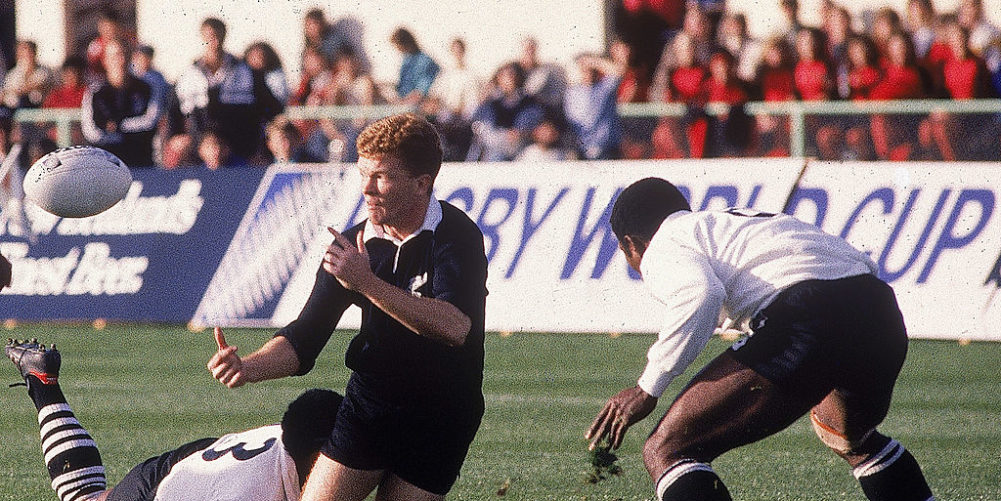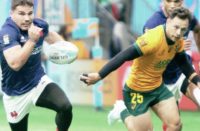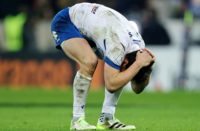George Simpkin died at the age of 77 in Hong Kong this month from cancer and although his name does not resonate loudly in these parts he was one of the great rugby missionaries of the 20th century.
He dreamt big and achieved much but was also frustrated at rugby's sometimes strange reluctance to truly expand its horizons.
Alas, I doubt if he will ever feature in a World Rugby Hall of Fame or some such because along with his total dedication to the game came a poorly disguised impatience with officialdom and even his friends will concede that he could be a tad eccentric and bonkers when it came to rugby. In a nice way.
Kiwi George was the man who took Fiji to a World Cup quarter-final in 1987 and helped them become a major force in Sevens – they won the Hong Kong title during his first year in charge in 1984 and again in his last year in 1990.
Conscientiously touring the islands in a dug out canoe crewed by the locals he spotted the talent of Waisale Serevi and many others at local village Sevens tournaments or pick up games on the beach.
In another later chapter of his career, he totally re-organised rugby in Hong Kong with a strong emphasis on getting local-born players into the ex- pat system and then took to nipping over the border and getting China – and in particular the Red Army – involved.
As a swansong he spent much time in Sri Lanka, a country he felt could become another Fiji given enough encouragement.
He was first and foremost a coach. He guided Matamata College in his beloved Waikato to a record-breaking 56-match winning streak and his eight year stint in charge of
Waikato Province saw them take the Ranfurly Shield by beating mighty Auckland. Even in the autumn of his career he managed to guide Sri Lanka to their first ever away Test in the frozen wastes of Kazakhstan.
His rugby brain was rarely still. He was very possibly the first man to develop the plastic kicking tee and he was also the coach who first suggested that after a try in a Sevens match, rather counter-intuitively, the team scoring the try should be the one that kicks off. Instantly it made for a better spectacle.
And eccentric? Well yes undeniably. In December 1996 I spent a memorable four or five days with him over the border in Guangzhou, then a Chinese city of three million souls now a metropolis of over 15 million.
He had secured an invite to teach rugby to the PLA whose main training camp was in the city where we had arrived by car in the middle of a Friday afternoon traffic snarl-up exacerbated by 40,000 attending a mass public execution in the newly-opened sports stadium.
The army top brass who met us and invited us to a banquet at their restaurant of choice just outside the gates of the army camp were very tense but, as we started to sink endless beers with each new course, they relaxed.
George had been on the wagon for eight years but not wishing to lose face when it came to the toasts had started necking the Tsingtao beer with some relish so much so that he got completely hammered and revealed to the military types that I was not in fact a rugby coach from the Hong Kong RU but a journalist from London who would make them and Chinese rugby famous.
The alarm on their faces would have been comical had it not been so serious and from that moment we were tailed for the entire trip after leaving the hotel.
Every morning before training I used to meet George for breakfast in a deserted hanger sized dining room.
After we drowned our final coffee he – from Waikato farming stock – would glance round to make sure nobody was looking and then proceed to do a sweep of every table opening up all the little pre-packed squares of butter which of course were produced in Waikato.
“Got to look after the boys back home, the more they use here mate, the more they have to provide,” was his comment.
Even at this stage of his career George, although lean and intrinsically fit as a fiddle, was struggling with arthritis and limped badly. He was, however, totally convinced by the powers of Chinese medicine and in particular Chinese massage.
On our walk to the PLA complex we passed a row of shacks where the Chinese medicine practitioners did their stuff on the foot-sore soldiers and every morning he would pull over and take a seat while they worked painfully on his knees and ankles with their sharp knuckles and elbows.
For the next three or four hours he would run around like a 19-year-old, but on the way back he would stiffen up and start hobbling horribly again and would call in for another MOT in the evening sun.
That is my abiding memory of George slumping into their treatment chair with a huge sigh of relief and happily accepting their offer of a ginseng tea.
Another session completed, another day spreading the rugby gospel.


























